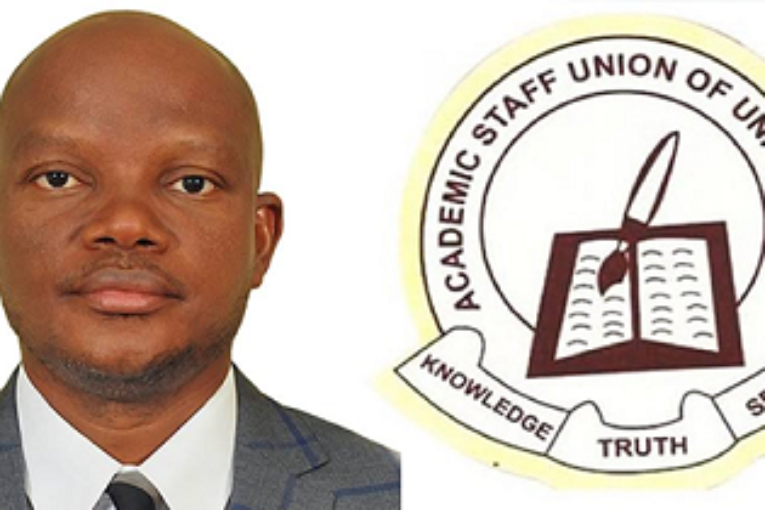
The President of the Academic Staff Union of Universities, Prof. Christopher Piwuna, has called on the Federal Government to urgently commence a sincere renegotiation of the long-standing 2009 ASUU–Federal Government agreement, in the interest of securing the future of Nigerian youths and building a university system capable of driving national development.
Piwuna made the remarks while participating in The Toyin Falola Interview, streamed across multiple social media platforms on Sunday.
The discussion, moderated by the renowned historian, Prof. Toyin Falola, featured a panel that included Prof. Francis Egbokhare of the Department of Linguistics, University of Ibadan; President of the Nigeria Labour Congress, Joe Ajaero; economist, Prof. Sheriffdeen Tella; and journalist with The PUNCH, Grace Edema.
Speaking during the session, the ASUU president argued that the 2009 agreement, originally negotiated under the administration of the late President Umaru Musa Yar’Adua, has “outlived close to five presidencies of Nigeria and almost 20 ministers of education.”
Piwuna maintained that ASUU’s call for the renegotiation of the 2009 agreement was not self-serving.
He said, “We are not doing it just for ourselves. Renegotiating the 2009 agreement is an investment in the future of this country. We must assure the youths of Nigeria that there is a future for them in tertiary education.
“For us, renegotiating this agreement is preparing this country for a future that is worth living in peace and prosperity.”
He explained that the 2009 agreement addressed key areas critical to an efficient higher education system, including funding, conditions of service, autonomy, academic freedom, research support, and infrastructural renewal.
Piwuna criticised what he described as the government’s lack of substantive commitment, noting that the failed implementation of the 2009 agreement reflects years of neglect of the education sector.
He said, “There is a lot of lip service when it comes to education in Nigeria.”
According to him, years of poor funding, policy inconsistency, and inadequate working conditions have crippled public universities, making it extremely difficult to attract high-calibre academics and sustain meaningful research.
He added, “Academic Staff Union of Nigerian Universities has never looked at education as a sprint; we know that it is a marathon. We are committed to it; we will continue to hold the government accountable for as long as it does not accept that education is a priority.”
Piwuna stressed that the future of Nigeria depends on a functional university system anchored on sustainable funding, academic freedom, and strong institutional governance.




